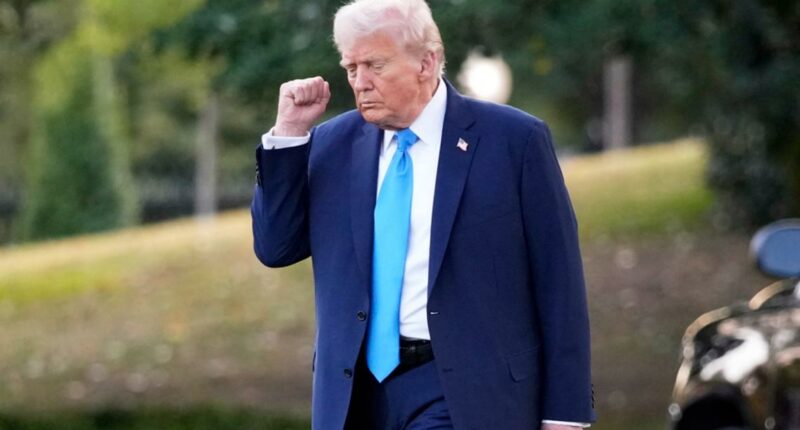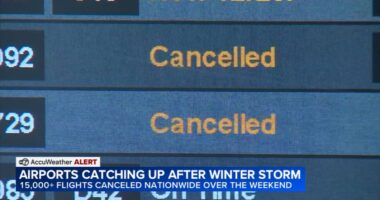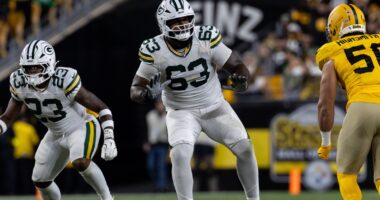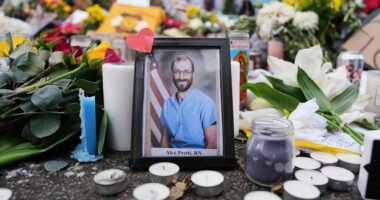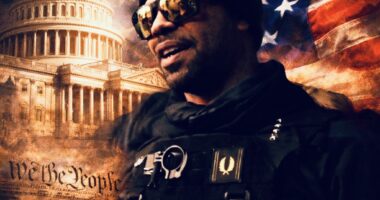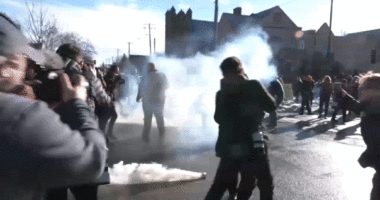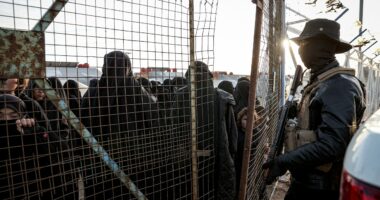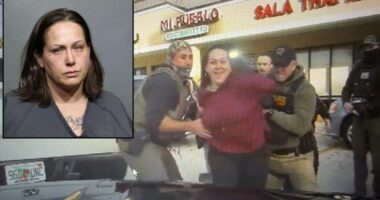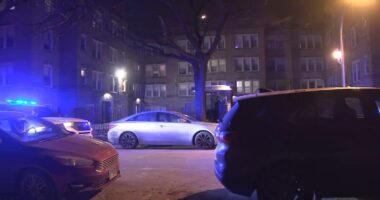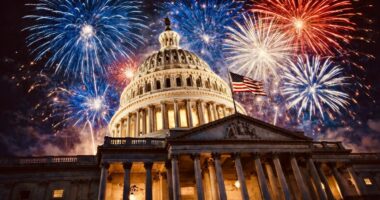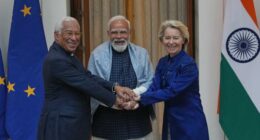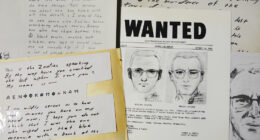Share this @internewscast.com
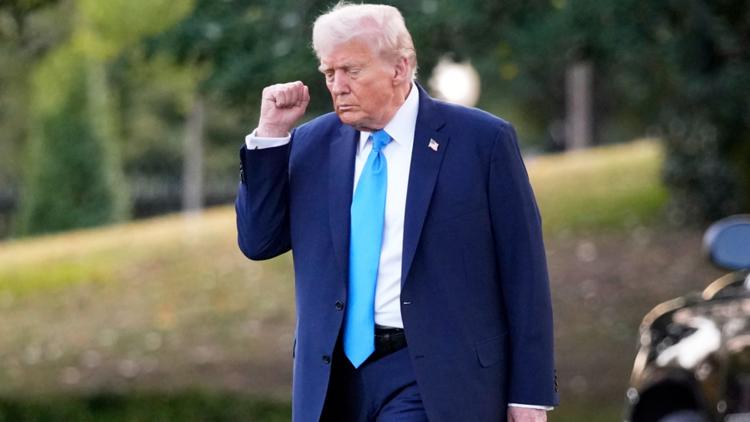
Antifa, short for “anti-fascists,” is an umbrella term for far-left-leaning militant groups and is not a singular entity.
WASHINGTON — On Monday, President Donald Trump signed an order to classify a movement known as antifa as a domestic terrorist organization, though its legal feasibility is uncertain. Trump accuses antifa of inciting political violence.
During a state visit to the UK last week, the Republican president announced via social media that he intended to make this classification. He described antifa as a “SICK, DANGEROUS, RADICAL LEFT DISASTER” and stated his intention to recommend thorough investigations into its financial backers.
The White House released Trump’s executive order shortly after he left for New York, where he was scheduled to deliver a speech at the U.N. General Assembly’s annual meeting on Tuesday.
Here are a few things to know about Trump and antifa:
What is antifa?
Antifa stands for “anti-fascists” and represents multiple militant groupings with far-left leaning ideals focusing on opposing neo-Nazis and white supremacists during protests.
Can Trump designate it as a domestic terrorist organization?
Being a domestic group, antifa does not qualify for the State Department’s list of international terrorist organizations, a list that includes groups such as the Islamic State and al-Qaida. This designation is significant as it allows the Justice Department to target those providing material assistance to these organizations, even if they don’t directly engage in violence.
However, there is no equivalent domestic list in the U.S. due to broad First Amendment rights protecting groups within the country. Despite calls after incidents often linked to white supremacists for a domestic terrorism statute, no such specific law currently exists.
The executive order did not specify how Trump he would go about designating antifa as a domestic terrorist organization.
What does antifa do exactly?
Literature from the antifa movement encourages followers to pursue lawful protest activity as well as more confrontational acts, according to a 2018 Congressional Research Service report.
The literature suggests that followers monitor the activities of white supremacist groups, publicize online the personal information of perceived enemies, develop self-defense training regimens and compel outside organizations to cancel any speakers or events with “a fascist bent,” the report said.
People associated with antifa have been present for significant demonstrations and counter-demonstrations in recent years, including mobilizing against a white supremacist march in Charlottesville, Virginia, in August 2017. They were also present during clashes with far-right groups in Portland, Oregon.
Why did Trump label antifa as domestic terrorists?
He says it’s a very bad and “sick” group. The executive order says antifa “uses illegal means to organize and execute a campaign of violence and terrorism nationwide” to accomplish its goal of overthrowing the U.S. government. The order calls on relevant government departments and agencies to use every authority to investigate, disrupt and dismantle any and all illegal operations, including terrorist actions conducted by antifa or anyone claiming to act on its behalf.
Trump’s history with antifa
In Trump’s first term, he and and members of his administration singled out antifa as being responsible for the violence at protests triggered by the killing of George Floyd, a Black man who died after a white Minneapolis police officer pressed his knee into Floyd’s neck for several minutes and held it there even after Floyd stopped moving and pleading for air.
Then-Attorney General William Barr described “antifa-like tactics” by out-of-state agitators and said antifa was instigating violence and engaging in “domestic terrorism” and would be dealt with accordingly.
At the time, Trump blamed antifa by name for the violence, along with violent mobs, arsonists and looters.
He recently began singling out antifa again by name following the Sept. 10 assassination of conservative youth activist Charlie Kirk, who was a big supporter of the president.
In an exchange with reporters in the Oval Office last week, Trump said he would pursue a domestic terrorism designation for antifa if such a move had the support of Pam Bondi, the current attorney general, and other Cabinet members.
“It’s something I would do, yeah,” Trump said. ”I would do that 100%. Antifa is terrible.”
He previously had called for antifa to be designated as a terror organization after skirmishes in Portland, Oregon, during his first term.
Copyright 2025 Associated Press. All rights reserved. This material may not be published, broadcast, rewritten, or redistributed.
